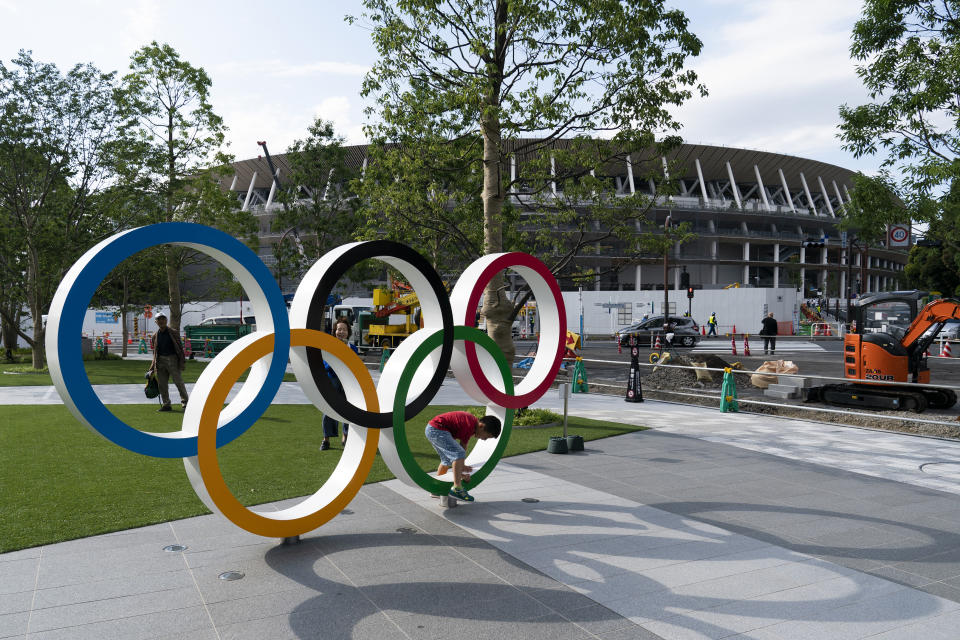Tokyo 2020 has a ticket issue brewing as a potential 'most popular Olympics'

Those seeking tickets to the summer Olympics in 2020 will be sorely disappointed.
The first round results of the ticket lottery for Japanese residents came out Thursday and millions reportedly received notice they were not winners. The ticket demand is a sharp difference from recent Olympics.
Tokyo ‘probably ... most popular Olympics’
Tokyo organizers reported 7.5 million Japanese residents applied for tickets in the three-week lottery. According to the city’s initial bid for the games, there are 7.8 million tickets available though organizers did not disclose how many were for sale during the first lottery.
Those applying for tickets typically request more than one. Ken Hanscom, chief operating officer of TicketManager, told the Associated Press there were likely 70-85 million individual ticket requests — 10 times what’s available in total. TicketManager does not buy or sell Olympic tickets, per the AP, and Hanscom approximated the number based off the 2012 London Olympics.
“This is probably going to be the most popular Olympics, and possibly one of the most popular events of all time.”
There are no numbers for how many people were awarded tickets in the first round, though the estimate by Hanscom is 10-20 percent of the applicants. Payments are due by July 2, at which winners will forfeit the tickets if there’s no payment, according to the Japan Times.
Another ticketing phase will run, per the AP, and the international phase opened in some places Thursday. Approximately 20-30 percent of tickets are sold internationally while the majority are held for the host country.
Why is Tokyo 2020 so popular?
The high demand for tickets in Tokyo is the opposite of the issue at the 2016 Rio de Janeiro games and the 2018 Winter Olympics in Pyeongchang. Their tickets were given away in an attempt to fill seats for TV cameras and volunteers would sometimes have to step in to make it look full.
There’s a plethora of reasons it may be different in Tokyo.
Japan is one of the top 10 most populous countries in the world, unlike South Korea, so there are more people to go for tickets. And in comparison to Brazil, another highly populous country, the Japanese economy is the third largest in world GDP.
Brazil was in its worst recession since the 1930s and was embroiled in political turmoil. Tickets were half the price of those in London four years prior, yet days before the opening ceremony organizers had sold only 82 percent.
The Tokyo games’ highest priced tickets are for the opening ceremony at 300,000 yen ($2,700) while prices in Rio were between $10 and $1,150, according to Reuters, with more than half priced lower than $17.
Then there’s history. Tokyo 1964 was legendary for the city and country, as detailed by The Guardian last week. It was at the forefront of technological innovations and hailed as the “science fiction” Olympics. The games brought Japan out of World War II with hope for the future and as recovery and reconstruction Games,” a key aim for Tokyo 2020 organizers, next year’s event will hopefully bring the same.
Problems in Tokyo with unused tickets?
While demand for tickets is high, there is still a good chance a lot of venues go unfilled. And that has the potential to make those who tried for tickets and missed irate.
“I expect there will be a problem in Tokyo,” Hanscom said. “The industry figure is that 40% of tickets that sponsors buy go in the trash,” he said. He said the problem was acute for the Olympics and World Cup.
Hundreds of seats are set aside for International Olympic Committee officials, sponsors and local dignitaries, per the AP. Ahead of the first notification of ticket winners, Japan put a ticket scalping ban into place.
More from Yahoo Sports:

 Yahoo Finance
Yahoo Finance 
